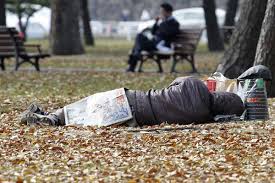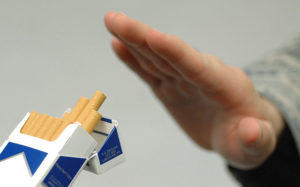
If we wish to go deeper than simply calculating correlations between median personal income and various demographic categories, we can take a look at the next level down of the Great Fractal, and examine correlations between income bands and specific industries.
It’s apparent from the numbers that winning working class loyalty is a battle between Labour and New Zealand First.
Labour does the best out of people who have next to nothing at all. The correlation between voting Labour in 2014 and having a net personal income of $5-10K was 0.45, and with having lost money in the year or having nil income the correlation was 0.54.
New Zealand First, by contrast, tended to dominate the lower working class vote. The correlation between voting New Zealand First in 2014 and income was above 0.70 for all of the income bands between $10K and $30K. For both Labour and New Zealand First, however, the correlation between voting for them in 2014 and any income band above $70K was -0.40 or even more strongly negative.
Although Aotearoa Legalise Cannabis Party voters were generally doing worse than average, they were closer to the middle than either Labour or New Zealand First voters. The correlation between voting for them in 2014 and being in the $50-60K income bracket was a significant 0.32, and even for the $150K+ bracket it was -0.31, significantly lower than average but barely so.
The National Party was predictably more oriented towards the middle classes, especially the wealthier ones, although this correlation was not as strong as one might have expected. For all of the income brackets above $70K the correlation with voting National in 2014 was between 0.34 and 0.36, which was significant but not particularly.
National did better than Labour in the $50-60K bracket, which is possibly where the winning of the election was more than anywhere else. After all, this bracket contains the sort of voters who don’t particularly win or lose from higher or lower taxes and so they tend to vote on apparent competence over ideology.
Voting for the National Party in 2014 had a negative correlation with every income band underneath $50K, although the correlations were not significant for the $15-25K income brackets, which were dominated by New Zealand First.
This creates an interesting contrast with the most established other right of centre party, ACT. The ACT party has no extra pull among the young in the $15-25K bracket – all of the income brackets between $10-40K have a correlation of -0.50 or stronger with voting ACT in 2014.
In the $15-25K income bracket there is little difference in the strength of correlation with either the National or the Labour parties. This is probably the result of one or more contradictory trends. Probably there are large numbers of people in this income bracket who, despite being poor, can count on being reasonably wealthy in a few decades, and so vote National in anticipation.
This phenomenon, of a small number of young people voting National because they expect to be wealthy in the future, is evidence of a burgeoning class system in New Zealand.
Winning the loyalty of the middle classes is essentially a battle between National and the Greens.
Voting Green in 2014 has a negative correlation with all income brackets between $10-50K, which will surprise anyone who might have thought the Greens stood for the poor and for those struggling. They have a significant positive correlation with the income band that is full of young students – between voting Green in 2014 and being in the $5-10K bracket is 0.30.
By contrast, voting Green in 2014 has a positive correlation with all income brackets above $50K, which confirms the picture that they represent the liberal urban elite rather than either the rural elite (National), the urban poor (Labour) or the rural poor (New Zealand First).
Perhaps the most interesting division of the middle class is its divide into managers and professionals.
The managers tend to be more right wing – voting National in 2014 has a correlation of 0.56 with being a manager, whereas for being a professional it is a not significant 0.10. The professionals tend to be more liberal – voting Greens in 2014 has a correlation of 0.73 with being a professional, whereas for being a manager it is a not significant 0.08.
*
This article is an excerpt from Understanding New Zealand, by Dan McGlashan, published by VJM Publishing in the winter of 2017.



